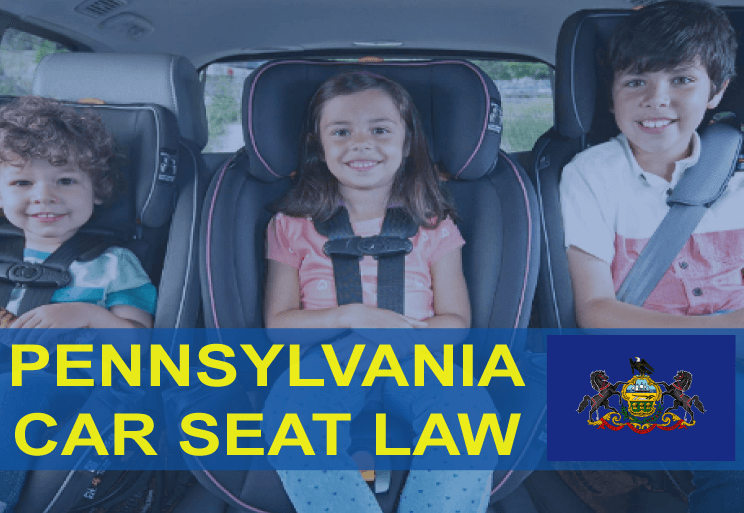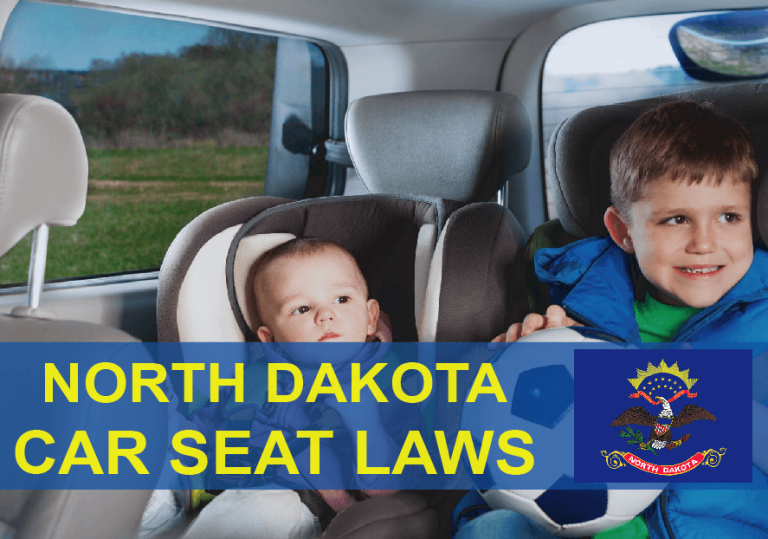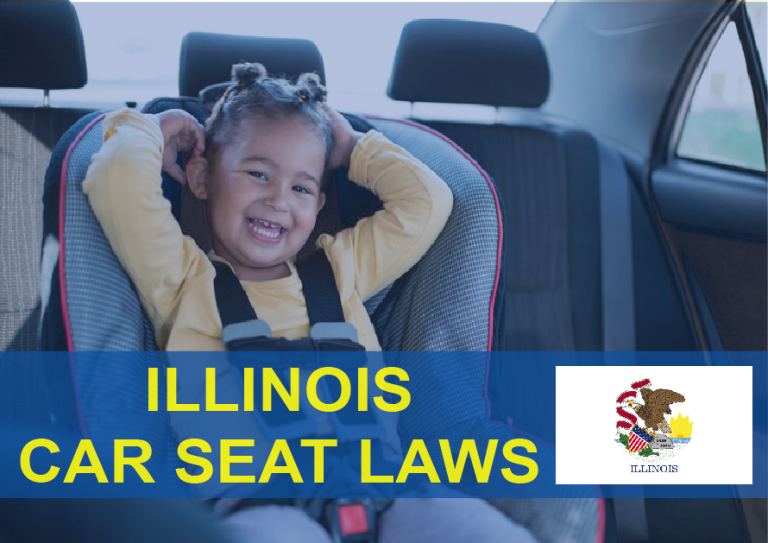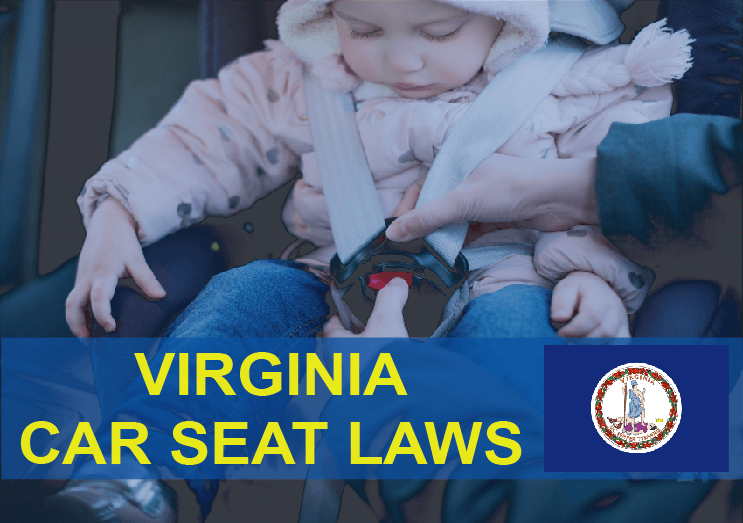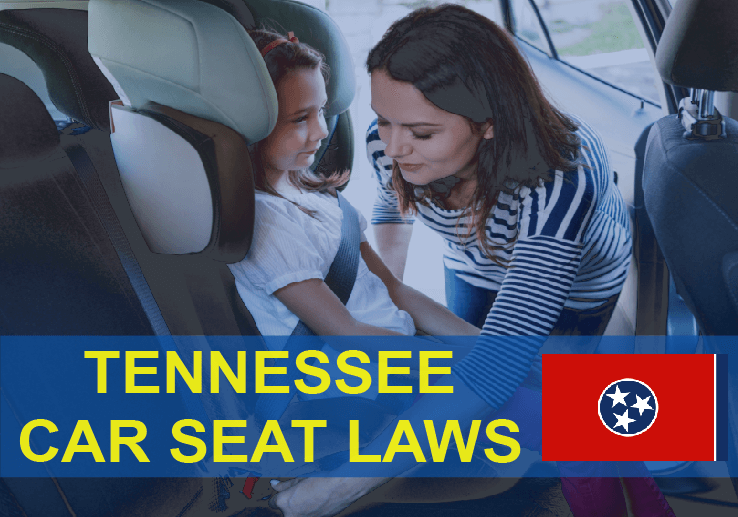North Carolina is known for its large population of young families. The state has made a huge effort to educate parents on child safety and car seat laws. Here is all the information you need about North Carolina car seat laws.
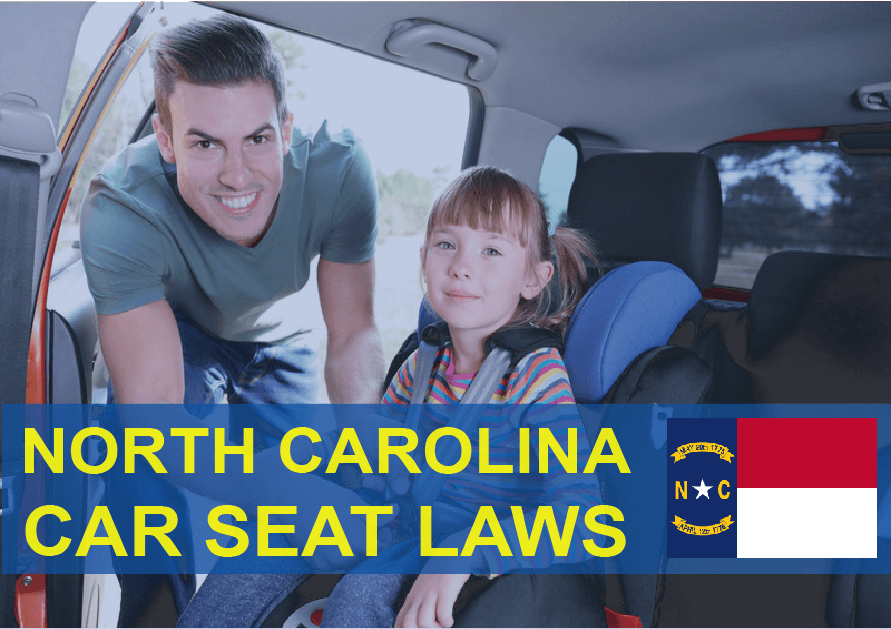
- North Carolina Car Seat Laws
- North Carolina Rear-facing Car Seat Law
- North Carolina Forward-facing Car Seat Law
- North Carolina booster seat law for young kids
- Requirements for children to use the front seat in North Carolina
- Taxi Car Seat Law in North Carolina
- North Carolina car seat replacement law after Accident
- Law on leaving a child in a car in North Carolina
- Penalties For Violating South Carolina Car Seat Laws
- Car Seat Law Exemptions in North Carolina
- Is it Illegal to Smoke in a Car with a Child in North Carolina?
- Car Seat Inspections Help in North Carolina
- Child passenger safety related videos North Carolina
- More information and resources on car seat safety North Carolina
- USA Child Passenger Safety Laws by State
North Carolina Car Seat Laws
According to the child passenger safety law of North Carolina,
“Every driver who is transporting one or more passengers of less than 16 years of age shall have all such passengers properly secured in a child passenger restraint system or seat belt which meets federal standards applicable at the time of its manufacture.”

North Carolina Rear-facing Car Seat Law
Children should remain in the rear-facing car seat as long as possible under the child restraint law. They should stay in the rear seat until they outgrow the height and weight requirements of a rear-facing car seat. Because the back of the seat protects the child’s vital body parts such as the neck and spine in case of an accident, this is considered a safer position.
North Carolina Forward-facing Car Seat Law
When your child reaches the rear-facing seat’s height and weight limits, you can move them to the forward-facing seat. However, in terms of safety, using a forward-facing is a step backward. Continue to use the rear-facing for as long as feasible.
North Carolina booster seat law for young kids
In North Carolina, a booster seat is required until a child reaches 80 pounds or 8 years old. Unlike most states, NC does not have a minimum height requirement for children to use an adult belt alone instead of a booster.
There are 2 types of booster seats:
• High-back booster seats – If your car’s seat back is lower than your child’s ears, you have to use a high-back booster seat to protect your child’s head and neck.
• Backless booster seats – If your car’s seat back is higher than your child’s ears, you can use a backless booster seat.
Requirements for children to use the front seat in North Carolina
As mentioned in the North Carolina law, your child must sit in the back seat until they are five years old and weigh 40 pounds. However, this is not advised since the seat belt would not fit your child correctly. Experts suggest that children sit in the back seat until they are 13 years old. make sure your child is wearing the seat belt properly with the lap belt and shoulder belt.
If you are confused about whether your child should use a booster seat or an adult seat belt only, this simple test will help you decide.
The Five-Step Seat Belt Fit Test:
- Is the child able to sit all of the way back against the auto seat?
- Are the child’s knees able to bend comfortably at the edge of the vehicle seat?
- Is the belt crossing over the shoulder between the neck and arm?
- Is the lap belt as low as possible, with the thighs?
- Is it possible for the child to remain in this position the whole journey?
If you answered “no” to any of these questions, your kid is not ready to sit in the front seat with an adult seat belt. he/she still requires a booster seat to travel safely in the car. Boosters are popular with kids since they are more comfortable!
Taxi Car Seat Law in North Carolina
Taxis are required by law to follow child seat regulations of North Carolina, and they aren’t exempt as in some other states.
North Carolina car seat replacement law after Accident
In the state of North Carolina, there are no regulations regarding auto seat replacement following an accident. You may consult the car seat’s user guide for further information. Accidents may range from minor to severe, and vehicle seat manufacturers usually provide guidelines on what to do if one occurs.
however, “NHTSA recommends that car seats be replaced following a moderate or severe crash in order to ensure a continued high level of crash protection for child passengers. Car seats do not automatically need to be replaced following a minor crash.”
Law on leaving a child in a car in North Carolina
There is no ban on leaving children in cars in Texas. Some states, on the other hand, have made it illegal to leave a child alone inside a vehicle. So double-check your local regulations, as they may be different. It’s not suggested that you leave your child alone for any length of time in a car.
Penalties For Violating South Carolina Car Seat Laws
The fine for failing to meet South Carolina’s child passenger protection system legislation is $150. This will be waived if you present the court with proof of purchase, rental, or acquisition of a child restraint system that meets legal standards no later than the appearance date indicated on your summons.
In South Carolina, you may be fined up to $25 if you are caught driving without a safety belt. This penalty cannot be postponed. You are not permitted to pay court costs, fees, or surcharges; have a fine increased more than $50 for any reason, or receive points on your license.
A violation is not a crime and cannot be recorded in your motor vehicle records or referred to your insurance. You, as well as any passengers you may have, are not permitted to be searched. A citation can only be given out if you break another motor vehicle law at a checkpoint.
Unless you fail to appear in court or pay a fine, you cannot be arrested or taken into custody for breaking South Carolina’s child passenger restraint system or safety belt laws.
Car Seat Law Exemptions in North Carolina
Ambulances and other emergency vehicles are not required to follow the state’s car seat laws. Vehicles that are not required by federal law to have seat belts installed are also excluded. Commercial trucks, such as taxis, must adhere to child passenger restraint regulations. Seatbelts must be installed on school buses weighing less than 10,000 pounds.
Is it Illegal to Smoke in a Car with a Child in North Carolina?
It is not yet against the law to smoke in a vehicle with a child passenger in North Carolina. but smoking in a car with a child passenger is not recommended.
There are many risks associated with smoking, especially when it is done around children. Secondhand smoke can cause respiratory problems, asthma, and other health issues in kids.
Car Seat Inspections Help in North Carolina
- Western North Carolina Safe Kids Coalitions
- Burlington Child Passenger Safety
- CPS Technician Search: Find a CPS Technician
- Durham County Car Seat Installation Stations
- Fuquay-Varina Child Safety Seat Inspection Program
- Greensboro Child Safety Seat Inspection
- Lincolnton Child Safety Seat Inspections
- Local North Carolina CPS Contacts
- NHTSA car seat inspection Center
- Safe Kids North Carolina Stations
- Town of Carrboro Car Seat Checking
- Town of Knightdale Car Seat Installation Training
- Triangle, North Carolina, Seat Installation
- Wilson Car Seat Installation
Child passenger safety related videos North Carolina
Car Seat Safety By Age: Infants in Rear-facing
Child Passenger Safety Tips and Guidelines
Rear-facing Car Seats for Babies: Safety Tips
Using LATCH to Install Car Seats and Booster
More information and resources on car seat safety North Carolina
- American Academy of Pediatrics Car Seat Recommendations
- American Automobile Association Car Seat Guide
- Car Seats: Information for Families
- Child Passenger Safety
- Choosing and Using Car Seats
- NHTSA Recall List
- NHTSA resources for Parents and Caregivers
- North Carolina Department of Public Safety Guidelines
- Why Car Seats Matter
- Why Use Rear-facing Car Seats?
USA Child Passenger Safety Laws by State
FIND YOUR STATE’S CAR SEAT LAWS
Click on your state on the map below to see your state’s car seat law

